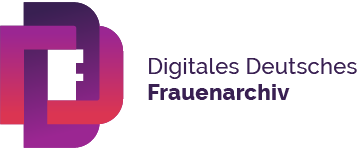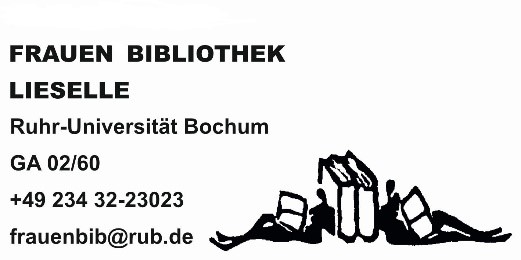


After a period of waning academic interest in the history of ideas, investigations of the intersections between formulations of moral and legal normativity and scientific standardization are now enjoying renewed attention among researchers. Unlike the common notion of reproductive politics and reproductive health care as a phenomenon of the late 19th and early 20th centuries, concepts of ‘human breeding’ and various ways of ‘birth control’ were developed in Western Europe since the middle of the 18th century. The project will focus on such concepts of "meliorism" (i.e., human improvement as a metaphysical goal given by nature that had to be deliberately fostered). Based on case studies and tracts dealing with ‘medical police’ and ‘medical hygiene’, scientific and economic experts as well as ‘Literaten’ of the German-speaking lands discussed problems such as the hereditary transmission of disabilities and diseases, and demanded the implementation of state protective laws in a variety of scientific and non scientific scholarly journals (“Gelehrte Journale”). In the forefront of the French Revolution especially French and German public servants developed concrete concepts for a strictly state controlled marriage policy. ‘Female stud farms’ in the manner of livestock breeders to enhance not only the ‘quantity’ but also the ‘quality’ of their countries’ population were part of such plans as well as forced selective breeding to produce pain resistant soldiers or robust agricultural laborers. The focus of the first part of the study will be upon the reception and transformation of such ideas between French and German scholars of various professions, primarily surgeons, physicians, and the (new academic) field of governance (“Cameralists”). In particular the project will address their utilitaristic perspective and its religious/ethic limitations on the range of legal means to promote the welfare of their respective states.
The second part of the project will focus on the transfer of such discourses to the USA. Academic writings as well as pamphlets and popular books like marriage manuals and domestic advisors dealing with the medicalization of demography and human reproduction enjoyed public success among the white middle class between the 1830s and 1860s. A variety of phreonologists as well as uniquely American Christian-utopian communities even experimented with ideas of selective breeding and reflected severely about the quality of "parental stock".
By examining scientific publications as well as popular and literary contributions ranging from the second half of the 18th century to mid 19th century the study explores the close entanglement of science, society, law, and nation building.
DFG Forschungsnetzwerk "Das Versprechen der Märkte".
Own position (DFG-Project) (The project will be continued externally).
In current debates on Europe, which among others, are related to the financial and political crisis, the European Union oftentimes is characterized as a community of shared values and a homogenous legal and economic space. This characterization is based on a geographical conception of Europe as a spatial unity, which is rarely questioned. The current project is concerned with this assumed geographical unity or the cartographic production of this entity.
Already in ancient times, there existed practices of graphical production of the world in the form of maps and atlases. Until today they undoubtedly represent powerful tools for the construction of ideas of order and visual appropriations. Political and exemplary pictorial orders always have been opposing each other.
The project deals with these ideas and the construction of spatial notions of Europe. It will focus on the physical and intellectual genesis of Europe during the eighteenth century in its geographical and pictorial dimension as well as on the mediality of maps in general.
The key assumption of the project is that between 1790 and 1860 in Western Europe, a geographically based spatialization of thinking and perception became prevalent, that came to be expressed in maps. Furthermore, I claim that these new graphic objects or media powerfully engaged in the reception and production of Eurocentric ideas of space. The analysis is based on an investigation of historical discourses on the production of maps, e.g. of instructions for the production of maps (cultural techniques). Cartography will be analyzed as a cultural technique that functions as a recursive network, in which processes and actors of map production are part of a permanent process of its constitution.
Indexing the (student) autonomous »women and lesbian movement (s)« in the Ruhr area using the example of the RUB's Autonomous Women*Lesbian Group
Since its founding end of January 1979, numerous materials have been collected: leaflets, minutes, information brochures, event flyers, theoretical contributions and conference reports as well as "Spuckis" (self adhesive stickers) and a few posters. We sift through all the materials, systematize and calogue them for open access online research and the DDF's META database. Selected documents and 'gray' literature are to be digitized, and a chronicle of the most important cornerstones and events in the history of the unit will be created.
Funded by:
Funded by inSTUDIES, the project covers an independent seminar unit which aims at supporting students in the development of their individual profile. It will focus on chosen examples from different fields of study that deal with expeditions and their impact on contemporary ways of thinking about the world, foreign countries and the traveler’s own position in it. Using an interdisciplinary perspective the aim is to analyze characteristics and problems related to various methods of generating knowledge: Which techniques of othering are used to describe non-western cultures? How can travel reports help to get an understanding of contemporary thinking in Europe? Which effects did travelling have on the conception of the world and the developments of science?
Finally, the participants will design a workshop for young learners in cooperation with the Alfried-Krupp-Schülerlabor, which will focus on selected topics from the seminar.
The second funding phase aims at students in the MA-phase offering a two-semester research module. Students should be given the opportunity to establish a self-chosen project in the field of travelling and science.
In the winter term 2016/17 a theoretical and methodological introduction to the overall topic Travelling and Criticism of Science will be given first. The project phase concentrates on the intersections between scientific practice, situatedness and social categories, such as race, class, and gender. (Queer-)feminist as well as postcolonial approaches to the criticism of science will be discussed with reference to the cultural practices of travelling.
The second semester is designed as project phase in which the students develop their research questions according to their disciplinary background. Additionally, the exchange in transdisciplinary teams provides a best possible opportunity to profit from individual skills.
The results will then be presented in form of a public symposium at the end of the summer term.
Responsible for the project: Yvonne Engel & Maurice Spengler
Maritime trade has always played an existential role for Sweden, starting with the "Vikings" in the 8th century up to the present day. Between 1731 and 1813 Swedish trade routes were extended to include the East Indies. The founding of the trading company Svenska Ostindiska Kompaniet (Swedish East India Company, commonly SOIC) sought to establish a trade route between Sweden and the East Indies, caused suspicion among the already successful trading companies of powerful states like France, the Netherlands and especially Great Britain, whether as an "offshore business" arising after the dissolution of the Ostend-company, or as an "interloper" in the international tea market, or even as a "smuggler". From its very beginning, the SOIC was exposed to many accusations and hostility in the course of its 82-year existence.
The proposed Master's thesis will examine the causes of some of these allegations by focusing on one specific episode. Central to the project is the analysis of the so-called "Porto-Novo" affair, initiated by Britain and France, during which the Swedish company became involved in business at the former Portuguese port of Porto Novo. During its first visit, a SOIC ship was attacked and stripped of its cargo. The motivation for the attack on the SOIC arose from the accusation that ship and crew could not be considered ‘Swedish’ due to the high number of British among the ship's crew. The Swedes naturally thought otherwise.
The project will review both sides through an investigation of the respective Swedish archives and additional British sources to reconstruct the case and consequences of the ‘affair’.
The project is generously supported by a six months Promos / DAAD scholarship.
Responsible for the project: Christin Simons